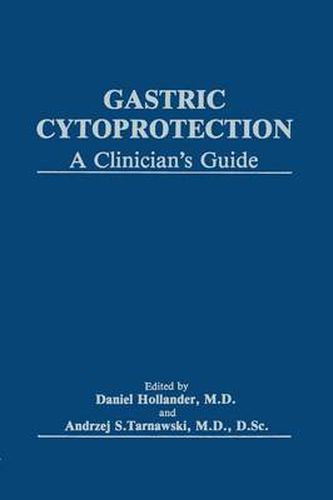Readings Newsletter
Become a Readings Member to make your shopping experience even easier.
Sign in or sign up for free!
You’re not far away from qualifying for FREE standard shipping within Australia
You’ve qualified for FREE standard shipping within Australia
The cart is loading…






This title is printed to order. This book may have been self-published. If so, we cannot guarantee the quality of the content. In the main most books will have gone through the editing process however some may not. We therefore suggest that you be aware of this before ordering this book. If in doubt check either the author or publisher’s details as we are unable to accept any returns unless they are faulty. Please contact us if you have any questions.
Gastric secretions contain hydrogen ions at a concentration that is more than one million times higher than their intracellular concentration. This phenomenal gradient as well as the demonstrated ability of gastric juice to digest tissues has motivated clinicians and investigators alike to emphasize acid secretion and acid ablation in studying the pathogenesis and therapy of peptic ulcer disease. Conse quently, over the past 150 years, we have made considerable progress in under standing the mechanisms and regulation of acid secretion by the stomach. Not surprisingly, therapy for both peptic disease and mucosal injury has also been predominantly directed at either neutralizing acid or suppressing its production. During the past 10 years, attention has been focused on factors other than acid in the genesis and therapy of ulcer disease. Work done worldwide demon strated that acid hypersecretion is not a common event in peptic ulcer disease. Therefore, we began realizing that factors other than acid secretion may be important in the genesis of ulcer disease or in gastroduodenal mucosal damage. In addition, new physiological information has established that the gas troduodenal mucosa is normally protected by a complex series of events includ ing mucus and bicarbonate secretion, cell renewal, surface mucosal restitution, and preservation of the microvasculature and mucosal proliferative zone.
$9.00 standard shipping within Australia
FREE standard shipping within Australia for orders over $100.00
Express & International shipping calculated at checkout
This title is printed to order. This book may have been self-published. If so, we cannot guarantee the quality of the content. In the main most books will have gone through the editing process however some may not. We therefore suggest that you be aware of this before ordering this book. If in doubt check either the author or publisher’s details as we are unable to accept any returns unless they are faulty. Please contact us if you have any questions.
Gastric secretions contain hydrogen ions at a concentration that is more than one million times higher than their intracellular concentration. This phenomenal gradient as well as the demonstrated ability of gastric juice to digest tissues has motivated clinicians and investigators alike to emphasize acid secretion and acid ablation in studying the pathogenesis and therapy of peptic ulcer disease. Conse quently, over the past 150 years, we have made considerable progress in under standing the mechanisms and regulation of acid secretion by the stomach. Not surprisingly, therapy for both peptic disease and mucosal injury has also been predominantly directed at either neutralizing acid or suppressing its production. During the past 10 years, attention has been focused on factors other than acid in the genesis and therapy of ulcer disease. Work done worldwide demon strated that acid hypersecretion is not a common event in peptic ulcer disease. Therefore, we began realizing that factors other than acid secretion may be important in the genesis of ulcer disease or in gastroduodenal mucosal damage. In addition, new physiological information has established that the gas troduodenal mucosa is normally protected by a complex series of events includ ing mucus and bicarbonate secretion, cell renewal, surface mucosal restitution, and preservation of the microvasculature and mucosal proliferative zone.